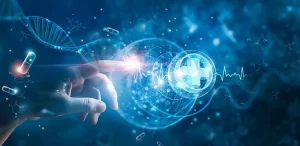It’s impossible to prepare yourself for an auto accident. You can always maintain a safe speed, remain diligent on the road, or keep your car or motorcycle maintenance up-to-date, but you can still be the victim of a severe auto accident.
Auto accidents, be they car accidents, truck accidents, or motorcycle accidents, can have long-term effects on both your health and well-being. While you may consider that the pain will go away with time, some injuries may cause severe, long-lasting effects.
Physical Effects
According to the Association for Safe International Road Travel, more than 38,000 people die in crashes on U.S. roadways every year. The U.S. traffic fatality rate is 12.4 deaths per 100,000 drivers. An additional 4.4 million are injured seriously enough to require medical attention, often resulting in long-term disabilities.
Unfortunately, it is very common in an auto accident for victims to suffer physical injuries. Head injuries are most common, such as contusions, concussions, diffuse axonal injuries, or penetrating head wounds. Other types of injuries include neck strains, damage to spinal discs, whiplash, or soft-tissue injuries. Depending on their severity, these injuries may lead to long-term effects such as chronic pain, memory issues, cognitive problems, or diminished mobility.
Auto accidents are the leading cause of traumatic brain injuries. One of the most dangerous aspects of these injuries is their potential for long-term effects, especially if they lead to coma or persistent vegetative state. Other long-term effects include personality changes and memory problems, both needed to maintain a job.
One example of chronic pain that many accident victims suffer is back pain. Injuries to the head, neck, or spine from an auto accident can cause discs in the body to rupture or become damaged. This can lead to inflammation and back problems later on in life. If an accident victim’s spinal cord sustains papilledema (swelling around nerve cells at the back of the eye), it signals a buildup of pressure around the brain, resulting in vision loss if left untreated.
The injuries sustained from whiplash may also cause diminished mobility as time goes on due to arthritis caused by damage done to surrounding joints and ligaments within them. Whiplash may also bring about long-term effects such as migraines and carpal tunnel syndrome (pain, numbness, or tingling felt in the fingers).
Emotional and Psychological Effects
Besides the physical injuries, you may experience emotional and psychological effects too. Some examples include depression, anxiety, mental anguish, post-traumatic stress disorder, weight fluctuations, mood swings, fear, shock, anger, and many more. Dealing with such conditions can impact your personal relationships or ability to continue working.
While dealing with the effects of your injuries, you must also cope with your loss because of your accident. Your ability to continue living normally and earning an income is greatly influenced by this setback.
Auto accidents can cause significant financial problems for people with limited resources or who lack insurance coverage. Even though car accidents are common, they are prone to causing long-term injuries that lead to medical bills which go over the average annual income without insurance coverage. This can be financially devastating for someone who does not have savings set aside for emergencies or doesn’t have an income to cover all medical expenses.
Feeling frustrated, upset, or angry are just some of the many emotions victims go through when dealing with long-term effects after an accident. Responding in an appropriate manner depends on the type of support you receive from your social circle, family members, insurance provider, or even your healthcare providers. All these factors can contribute to how well your healing process goes.
Recovery from Auto Accident Injuries
If you have been involved in an auto accident and are experiencing major pain or trauma that prevents you from working or being comfortable, it’s essential that you seek medical attention immediately. If necessary, your treating doctor may refer you for physical therapy treatments, but do not attempt any self-recovery techniques without consulting a health professional. While some types of injuries might be minor and allow for recovery at home, certain injuries require professional care and supervision.
Your recovery may last longer than expected for severe injuries. The treatment also varies based on the severity and the type of injury.
- Traumatic brain injuries. These take months or years to heal fully. Rehabilitation may be required to treat some symptoms caused by these injuries.
- Whiplash symptoms can heal in several weeks, but the recovery could take months.
- Soft tissue injuries can heal in weeks, depending on their severity. For example, muscle tears may require surgical treatment or physical therapy and usually take months to recover fully.
- Herniated discs may require surgery, and months may be needed for recovery. Unfortunately, herniated discs can lead to long-term effects like chronic pain.
- Broken bones require surgery and take three to four months to recover.
- Emotional and psychological injuries require treatment by a mental health professional. As for recovery, there is no set timeframe because each case may vary from one person to another.
There are various treatment methods to help those injured heal their body and mind and recover as soon as possible from an auto accident. For example, chiropractors initially find the problem areas and work to correct them through physical manipulation. They use techniques such as spinal adjustments, electric muscle stimulation, or rehabilitative exercises.
Massage therapists use long strokes and deep finger pressure and often work on the muscles and joints that may be causing strain. Massage therapists help victims to heal faster, both emotionally and physically. It is proven that massages increase blood circulation, range of motion, or help reduce swelling. Physiotherapy is used to eliminate the need for surgery and to help you recover faster from injuries to the muscles, tendons, ligaments, cartilage, nerves, or bones. This includes helping you heal from broken bones, sprains, bruises, and whiplash.
If you suffer any of these injuries, visit a clinic after the accident to prevent further complications.


